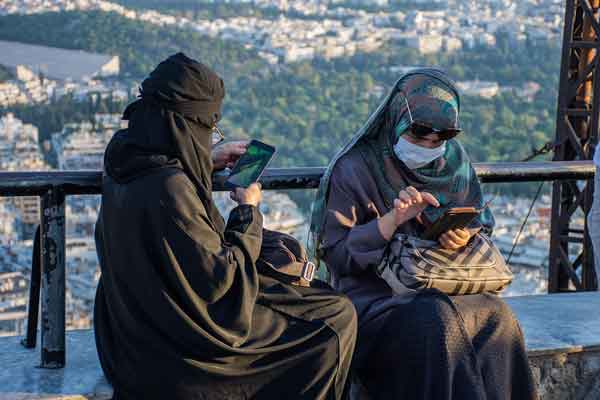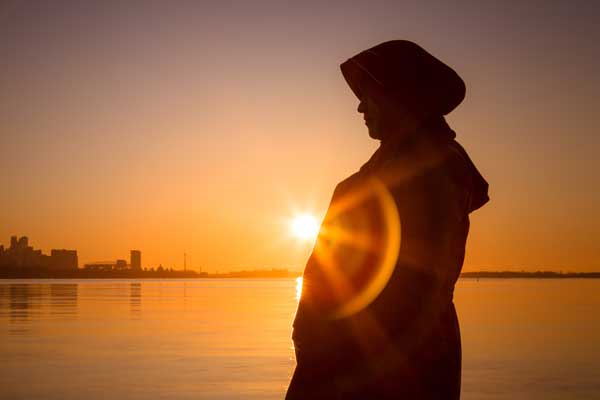During the Dark and Medieval Ages of Europe, religious intolerance was encouraged by the Catholic Church as well as the various European kingdoms scattered across the continent. They would often call for “inquisitions,” where Catholic militias and gangs would purge Jews, Muslims, and non-Catholic Christians from their localities. Minorities were either expelled, killed, or forcibly converted to Catholicism. Many were also forced to live in ghettos; in fact, the word “ghetto” originated in Italy to describe a Jewish locality in Venice. Although the inquisitions have long ended in Europe, a new approach for a similar objective — to root out the beliefs, traditions, and/or symbols of the “other” — has been undertaken, and intolerance is now resurfacing.
Today, several European countries including Austria, Belgium, Denmark, France, the Netherlands, and most recently Switzerland, have imposed complete or partial bans on the Islamic dress for women, namely the hijab, niqab, and burqa. In these states, fines or jail time has been prescribed as punishment for those wearing a burqa or niqab in public and wearing even the hijab at a university or school is enough to warrant removal from the institution. Claiming concern about security, female liberty, and secularism, many European countries have given Muslims, and Muslim women in particular, two practical options: integrate into European society by compromising their faith or practice their faith elsewhere to avoid the punishment. Similar to the Medieval Ages, Europe today refuses to validate and give full rights to “others,” and instead of encouraging the diversity and freedom of expression that secularism champions, it has given Muslims the option to either give up the tenets of their faith or face the consequences — a dangerous déjà vu from the Dark Ages.
The Claim of Security
One of the most widespread claims against the burqa or niqab being worn in public is that they are a security concern. In April of 2017, Paul Nuttal, a now-former member of the European Parliament representing the United Kingdom Independence Party, claimed that “if CCTV is to be effective, in an age of heightened terror, you need to see people’s faces.” Mr. Nuttal was a vocal advocate for a ban on burqas and niqabs in the United Kingdom throughout his tenure. However, when asked to provide data as to how effective a burqa ban would be, The Home Office, Scotland Yard, and the National Police Chiefs Council all told Fact Check they were not aware of any statistics showing the proportion of people who cannot be identified on CCTV, or any records of the reasons why. David Videcette, a former officer with Scotland Yard’s Anti-Terrorist Squad, asserted that burqas did not pose a security threat, stating that “CCTV generally often just shows people’s bodily movements and what they did somewhere, as opposed to identifying them facially.” Instead of providing increased security, the burqa bans may be emboldening those who see Muslim women as targets for harassment. The Collective Against Islamophobia in France stated in a 2011 report, the same year that France imposed the burqa ban, that 94 percent of victims of anti-Muslim physical and verbal abuse are women, and over 84 percent of all reported Islamophobic acts are targeted at women. The report also stated that the increasing Islamophobic attacks are often aimed at Muslim women who are singled out because they are wearing a hijab, burqa, or niqab. Interestingly, since the start of the COVID-19 Pandemic, European countries such as France have imposed strict guidelines for the required use of face masks in public and no security concerns were raised by either politicians or the populace.
The Claim of Female Oppression
Many European politicians have also claimed that the burqa is a symbol of female oppression imposed by Muslim men. Former French president Nicolas Sarkozy, who is often seen as the pioneer of the “burqa ban” movement, stated in 2009 that the burqa is “a problem of liberty and women’s dignity,” before also stating that the burqa is “not a religious symbol, but a sign of subservience and debasement.” Several European politicians have made similar claims. Ironically, these self-portrayed champions of female liberty refuse to take into account the opinions of those who they claim to be liberating. In all of the “burqa ban” debates in European parliaments, not one burqa- or niqab-wearing Muslim woman was consulted, which makes it difficult to take at face value the seemingly good intentions of these politicians. It has indeed been mostly men creating legislation regarding the manner in which a woman dresses — a major issue that modern feminists should oppose and bring to light. Moreover, the European Court of Human Rights out rightly rejected the argument that a burqa ban was necessary for liberating women, commenting that “A State Party cannot invoke gender equality in order to ban a practice that is defended by women.” The applicant in that particular case asserted that she wore the niqab voluntarily like the vast majority of Muslim women who wear the burqa and niqab did. If European politicians are actually concerned for the rights of Muslim women, perhaps they should consult some of the “victims” before speaking for them.
The Claim of Secularism
Perhaps the greatest element of irony in the arguments of those who want to ban the burqa or niqab being worn in public is the claim of defending the values of secularism. European politicians such as Mr. Sarkozy have often stated their intention to “protect secular values” and maintain the separation of church and state when imposing bans on hijabs in schools and universities. However, even a superficial analysis of the tenets of secularism shows that the freedoms of religion and expression are well supported and encouraged in a secular society. In openly secular societies such as the United States, for example, the French burqa ban was strongly condemned. Former spokesperson of the State Department, Philip Crowley, bluntly declared that “We [The United States] do not think that you should legislate what people can wear or not wear associated with their religious beliefs,” before further asserting that “in the United States, we would take a different step to balance security and to respect religious freedom and the symbols that go along with religious freedom.” Furthermore, Article Nine of the European Convention of Human Rights addresses the freedoms of religion and expression, giving the right to practice one’s religion “in public or private, through worship, observance, practice, and teaching.” Amnesty International, in response to a ban on face veils in Belgium, explicitly stated that it “would violate the right to the freedom of expression, and of religion, of women who choose to express their identity or their beliefs in this way.” When Switzerland moved to ban the burqa in March of 2021, Ravina Shamdasani, the United Nation’s Human Rights Office spokeswoman, expressed her dismay at Switzerland “joining the small number of countries where actively discriminating against Muslim women is now sanctioned by law.” She further stated that the move was “deeply regrettable.”
For years, European politicians have claimed that the burqa ban is in the interest of security, women’s rights, and the values of secularism. However, as a study by Shaira Nanwani of Emory University found, “the burqa ban is disproportionate to both of its stated aims of promoting gender equality and promoting public safety.” Not only does the ban fail in its alleged aims of promoting security and female liberty, it is also clearly not in line with secular values. The upholders of secularism, especially feminists, must now work to save secularism in the cradle which birthed it — Europe. Several European states have sent a strong message to Muslims: give up your religion or face the consequences. This is the same message that Europe sent to Jews, Muslims, and other minorities during the Dark and Medieval Age Inquisitions. Given that none of the stated objectives of the burqa ban have been achieved, it is time to wonder if modern Europe’s motives are the same as they were all those centuries ago.






